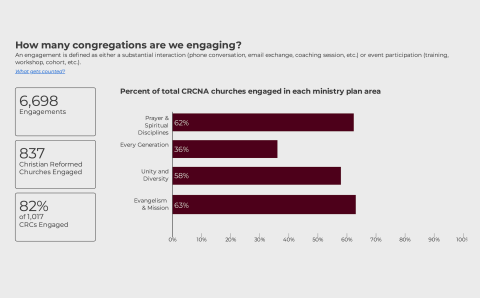When I’m asked about the Bible’s view on economics, I immediately quote the apostle Paul in 2 Corinthians 8:13-15: “Our desire is not that others might be relieved while you are hard pressed, but that there might be equality. At the present time your plenty will supply what they need, so that in turn their plenty will supply what you need. The goal is equality, as it is written: ‘The one who gathered much did not have too much, and the one who gathered little did not have too little.’”
The context is Paul gathering money for the church in Jerusalem. He was planning a trip there, so he thought he’d put together some financial aid for the Jerusalem congregations from the churches in the Greek areas he was ministering in. Apparently a severe drought was affecting Israel.
I find it fascinating that the reasoning behind the request for aid was drawn from the Old Testament story of the heavenly bread—manna—God gave to the Israelites to sustain them in the wilderness (Ex. 16). The Israelites were commanded not to gather more manna each day than they needed. If they did, it would rot (except on the Sabbath). In other words, they couldn’t hoard the manna or create some sort of manna wealth. They got what they needed each day—no more, no less.
Jesus also speaks about this idea of “manna economics” in Luke 12, where he says, “Do not set your heart on what you will eat or drink; do not worry about it. For the pagan world runs after all such things, and your Father knows that you need them. But seek his kingdom, and these things will be given to you as well” (vv. 29-31).
Initially, the early church followed this command by living communally. Acts 2:44-45 tells us, “All the believers were together and had everything in common. They sold property and possessions to give to anyone who had need” (see also Acts 4:32-5:10). Communal living has continued in the church throughout its history. The monastic movement is one example of this.
Does this mean our goal is to live communally or to practice socialism?
No! People throughout the New Testament owned things privately. But it does mean that we need to see our possessions as first being owned by Christ. We need to see ourselves as stewards of what God has given us (Lev. 25:23). And as good stewards, we must be responsible for and attentive to all we’re given in this life, realizing that ultimately we don’t own anything at all. It all belongs to God (Luke 12:35-48)!
The bottom line is this: No matter what political or economic climate the church finds itself in, we are told to season this world with this “manna attitude” toward wealth. After all, every Christian is supposed to be a living representative of Christ and his coming kingdom. We are always to be the salt of the earth by living in the way of Jesus. One of the greatest threats to the future of the church is when the church’s economic message ceases to be any different from the economics of this world. That’s when the salt loses its saltiness and our message is “no longer good for anything, except to be thrown out and trampled underfoot” (Matt. 5:13). Instead, let us live out Christ’s message to love our neighbors as ourselves in all times, to all people, and in all places! This is the very definition of manna economics.
Discussion Questions
- How do you feel about the current economic situation where you live? Why do you feel this way?
- “One of the greatest threats to the future of the church is when the church’s economic message ceases to be any different from the economics of this world.” Do you agree with this statement? Why or why not?
- What other biblical principles might be added to what this article has suggested?
- How might you practice “manna economics” in your life? Is there any specific action you can take toward improving your “manna attitude” to wealth?
About the Author
Rob Braun is a member of Bethel CRC in Princeton, Minn. He's been married for 47 years to his wife, Tammi, and has three adult children and two grandchildren. He's a semi-retired freelance writer and pastored an independent church for 15 years, former Hockey Coach and worked in retail for over 50 years.









